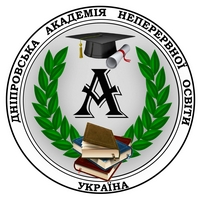METHODS AND TOOLS FOR ASSESSING ORGANISATIONAL CULTURE IN PUBLIC AUTHORITIES IN THE CONTEXT OF DIGITALISATION
Abstract
The article examines the theoretical and practical aspects of the development and implementation of methods and tools for assessing organisational culture in public authorities in the context of digitalisation. The author substantiates the need to improve existing approaches to assessing organisational culture, taking into account the challenges of digital transformation of public administration. Scientific approaches to understanding the essence of organisational culture assessment in the digital era are analysed, existing methods and tools for such assessment are systematised, their limitations and shortcomings are identified in the context of modern requirements for organisational development of public authorities. An innovative method of dynamic cultural analysis in the context of digitalisation (DCAC) has been developed, based on a multi-level approach (individual, structural, organisational levels) to assessing cultural changes in real time. An algorithm for implementing the DCCA is proposed, which includes a preparatory stage, collection of basic data, setting up monitoring tools, data analysis, interpretation of results, periodic evaluation and improvement. The potential problems of implementing the method are identified and ways to minimise them are proposed. An innovative tool, the Digital Cultural Index of Adaptability (DCIA), has been developed, which allows systematically measuring the level of digital adaptability of organisational culture by assessing four key components: the level of digital competence, readiness for innovation, cultural support for transformation, and digital interaction. The algorithm for implementing the CCA and recommendations for overcoming possible barriers to its implementation are presented. The essence of the study is to develop a comprehensive approach to assessing organisational culture in the context of digitalisation, combining an innovative method and tool that takes into account the specifics of the public sector and modern requirements for the digital transformation of government. The practical significance of the results obtained is determined by the possibility of their use to improve the efficiency of organisational culture management in the process of digitalisation of public authorities.
References
2. Смолінська О. Категорія організаційної культури у вищій педагогічній освіті: проблеми означення. Вісник Львівського державного університету безпеки життєдіяльності. 2011. № 5. С. 223-228.
3. Іщук О. Науково-теоретичні підходи до вивчення феномена організаційної культури. Наукові студії із соціальної та політичної психології. 2011. № 28. С. 202-213.
4. Schein, E. (2010). Organizational culture and leadership (Vol. 2). John Wiley & Sons. 464 p.
5. Cameron, K. & Quinn, R. (2006). Diagnosing and Changing Organisational Culture Based on Competing Values Framework. Josey Bass, San Francisco.
6. Тодощак О., Фролова Є. Оптимізація методів публічного адміністрування в умовах цифровізації. Науковий вісник Ужгородського Національного Університету : серія право. 2023. Вип. 76. Ч. 2. С. 79-84. DOI: https://doi.org/10.24144/2307-3322.2022.76.2.13.
7. Jung, T., Scott, T., Davies, H., Bower, P., Whalley, D., Mcnally, R., & Mannion, R. (2009). Instruments for exploring organizational culture: A review of the literature. Public Administration Review, 69, 1087-1096. DOI: https://doi.org/10.1111/J.1540-6210.2009.02066.X.
8. Isensee, C., Teuteberg, F., Griese, K., & Topi, C. (2020). The relationship between organizational culture, sustainability, and digitalization in SMEs: A systematic review. Journal of Cleaner Production, 275, 122944. DOI: https://doi.org/10.1016/j.jclepro.2020.122944.
9. Maksimova, M., Alishani, A., Solvak, M., & Krimmer, R. (2022). Automated impact assessment – How digitizing government enables rapid and tailor-made policy responses. In Proceedings of the 23rd Annual International Conference on Digital Government Research (dg.o '22). Association for Computing Machinery, New York, NY, USA, 244-251. DOI: https://doi.org/10.1145/3543434.3543653.
10. ISS World Europe 2024 – огляд учасників. Інститут постінформаційного суспільства. 29.05.2024. URL: https://postinfosociety.com/iss-world-europe-2024/ (дата звернення: 12.11.2024).
11. Cresswell, K., Sheikh, A., Krasuska, M., Heeney, C., Franklin, B., Lane, W., Mozaffar, H., Mason, K., Eason, S., Hinder, S., Potts, H., & Williams, R. (2019). Reconceptualising the digital maturity of health systems. The Lancet. Digital health, 1(5), e200-e201. DOI: https://doi.org/10.1016/S2589-7500(19)30083-4.
12. Bruno, I., Lobo, G., Covino, B., Donarelli, A., Marchetti, V., Panni, A., & Molinari, F. (2020). Technology readiness revisited: a proposal for extending the scope of impact assessment of European public services. In Proceedings of the 13th International Conference on Theory and Practice of Electronic Governance (ICEGOV '20). 23-25 September 2020. Association for Computing Machinery, New York, NY, USA, 369-380. DOI: https://doi.org/10.1145/3428502.3428552.
13. Tokmergenova, M., & Dobos, I. (2024). Analysis of the Network Readiness Index (NRI) Using Multivariate Statistics. Periodica Polytechnica Social and Management Sciences, 32(1), 28-36. DOI: https://doi.org/10.3311/PPso.20548.
14. Novianto, N. (2023). Systematic Literature Review: Models of digital transformation in the public sector. Policy & Governance Review, 7(2), 170-194. DOI: https://doi.org/10.30589/pgr.v7i2.753.
15. Dema, H., Hamid, H., & Barisan, B. (2023). Transformational Leadership in Supporting Innovative Digital Governance. Jurnal Studi Pemerintahan, 14(1), 69-80. DOI: https://doi.org/10.18196/jgp.v14i1.13528.
16. Yaroslav Zhovnirchyk, Valeriy Cherkaska, Oksana Inozemtseva, Serhii Zhuravel, Dmytrо Pyzyuk. Formation of a Planning Model for Improving the Competence of Personnel in the Context of Sustainable Development. International Journal of Sustainable Development and Planning, 2023, 18(6), рр. 2959-2965. DOI: https://doi.org/10.18280/ijsdp.180934

 ISSN
ISSN  ISSN
ISSN 

